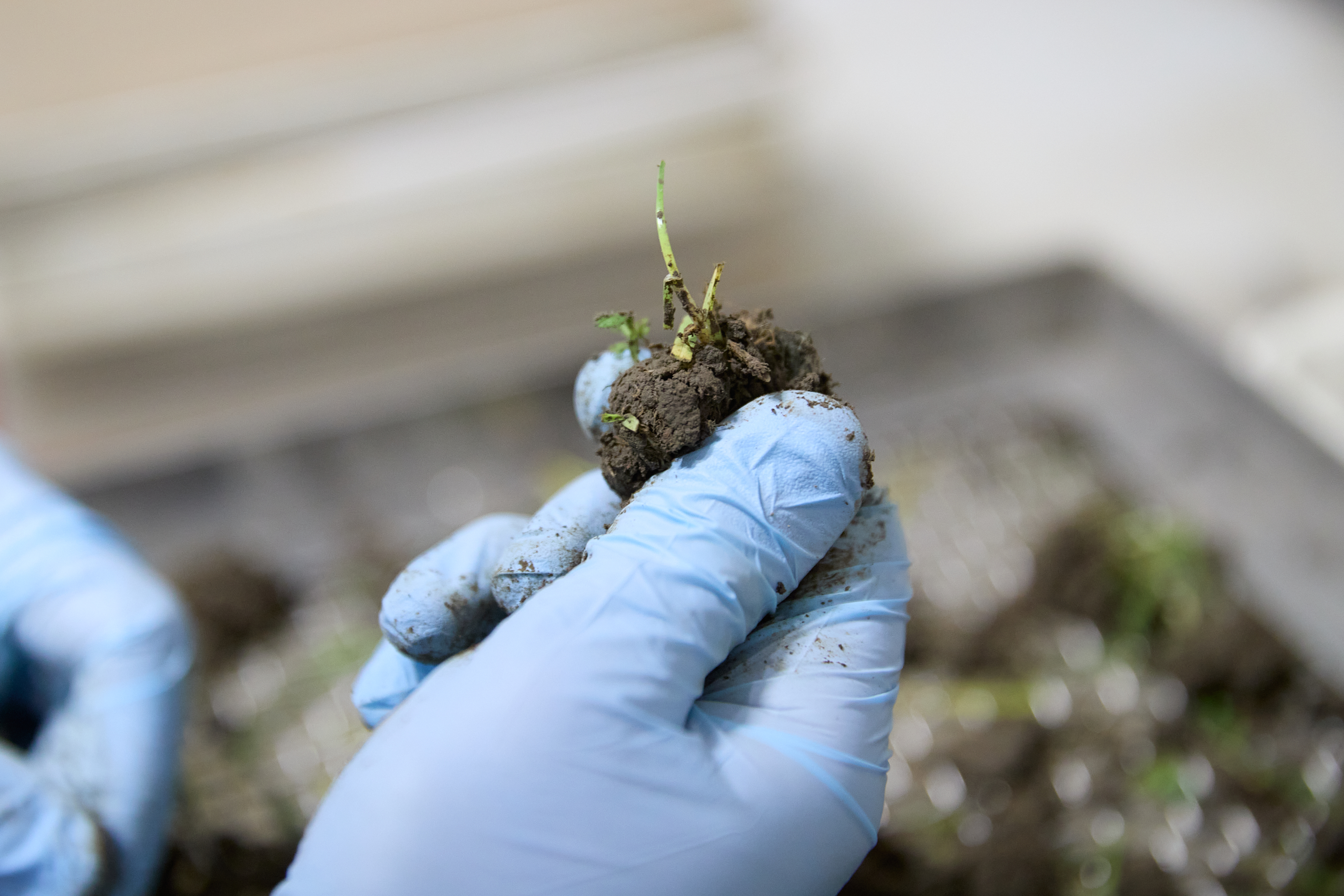Agricultural and Horticultural Soil Testing
Agricultural and horticultural soils are tested to measure the soil fertility and soil quality for monitoring fertiliser programmes and to assist with identifying nutrient deficiency or toxicity.
Why test soil?
Soil testing takes the guesswork out of nutrient management and allows sound decisions to be made for optimal use of fertiliser for sustainable production. However, historical land use will affect nutrient levels, with soils under intensive cultivation often having abnormal levels of some nutrients due to previous management practices and fertiliser programmes.
The value soil testing delivers
- Measure whether soil nutrient levels are high enough to sustain the desired level of plant growth.
- Indicate the existence of any deficiency, excess or imbalance of major nutrients.
- Provide a scientific basis on which to assess fertiliser and lime requirements of crops, pastures and turf.
- The Organic Soil Profile provides a measure of soil quailty; testing the soil organic matter, potentially available nitrogen, total nitrogen and carbon: nitrogen ratio.
- The Hot Water Extractable Carbon test is recommended as a good indicator of microbial activity in the soil, as it is highly correlated with microbial biomass carbon and aggregate stability.
- A useful package of tests for assessing soil health is provided, being the Soil Health package [SoilHealthp]. This includes the Basic Soil profile, the Sulphur profile, Anion Storage Capacity, the Organic Soil Profile and Hot Water Extractable Carbon. Additional testing for heavy metal contaminants such as total cadmium and total copper may be important in some instances.
Soil tests measure only a fraction of the total pool of nutrients available to plants (immediate and medium term) so it is important that standard New Zealand methods of sampling and soil analysis are used so the results are meaningful and can be related to plant growth under New Zealand conditions.




